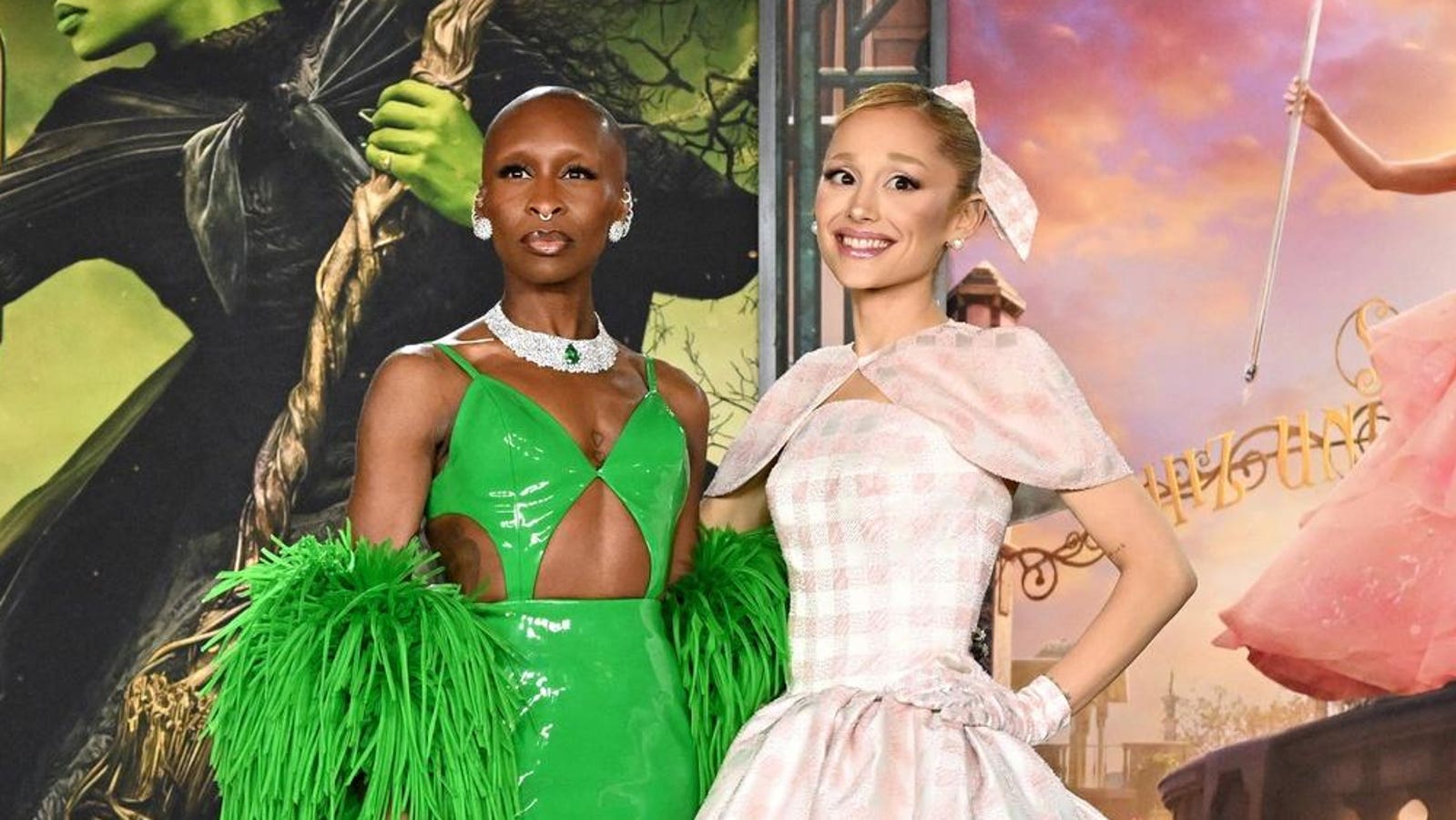Diversity and Inclusion (DEIA)
UK Government Unveils Plans to Slash Disability Welfare Spending

Pathways to Work: Reforming Benefits and Support to Get Britain Working
The UK Government has unveiled its long-awaited proposals to cut disability welfare spending, which is forecast to reach £75.7 billion by 2030, up from £48.5 billion in 2023. The proposals aim to reduce this sharp rise by £5 billion.
Cut Out
The government plans to tighten the criteria for the daily living component of Personal Independence Payments, which focuses on activities like washing and dressing independently. From November 2026, it will be harder to qualify for financial assistance based on these activities as the scoring system used to determine eligibility will become more stringent.
Targeting The Vulnerable
The reforms also include plans to freeze the health or disability components of Universal Credit until 2029/30 and virtually halve them for new claimants. Those with potentially serious and life-limiting disabilities who are under 22 will no longer receive any top-up payments related to ill health but will instead be more vigorously directed towards employment support and training opportunities.
Reform Proposals
Additionally, the government plans to:
- Abolish the separate Work Capability Assessment by 2028 and merge it into the assessment for Personal Independence Payments, creating a single, streamlined, and holistic health assessment based on activities of daily life.
- Roll out a "right to try" scheme, allowing benefit claimants to try out employment without fear of having to reapply for benefits if things don’t work out.
Disability Community’s Reaction
The Disability Benefits Consortium, a coalition of over 100 charities, has labelled the cuts as "immoral" and "devastating." James Taylor, Executive Director of Strategy at disability equality charity Scope, said, "The biggest cuts to disability benefits on record should shame the government to its core. They are choosing to penalize some of the poorest people in our society. Almost half of families in poverty include someone who is disabled."
Conclusion
The government’s proposals have been met with a strong outcry from disability charities and representative groups, who argue that the cuts are "immoral" and "devastating." While the government claims that the reforms are designed to support people with disabilities into work, many are concerned that the cuts will disproportionately affect the most vulnerable members of society.
FAQs
- What is the proposed change to Personal Independence Payments?
- The government plans to tighten the criteria for the daily living component of Personal Independence Payments, making it harder to qualify for financial assistance.
- What is the plan for Universal Credit?
- The government plans to freeze the health or disability components of Universal Credit until 2029/30 and virtually halve them for new claimants.
- What is the "right to try" scheme?
- The scheme allows benefit claimants to try out employment without fear of having to reapply for benefits if things don’t work out.
- What is the reaction of disability charities?
- The Disability Benefits Consortium has labelled the cuts as "immoral" and "devastating," with many charities expressing concern that the reforms will disproportionately affect the most vulnerable members of society.
Diversity and Inclusion (DEIA)
Gender-Inclusive Films Outperform at the Box Office, Study Finds

ReFrame, a joint initiative by Sundance Institute and WIF (formerly Women In Film Los Angeles), aims to promote gender equity in the screen industries. The organization introduced the ReFrame Stamp, which is awarded to films with gender-balanced teams, including production, crew, and actors. According to a new study by IMDbPro, films with gender-balanced teams tend to perform well at the box office.
Box Office Success of ReFrame Stamped Films
The study found that ReFrame Stamped films within the top 100 at the worldwide box office earned an average of more than double the non-Stamped movies on the list, with $293 million gross vs. $117.8 million. Inside Out 2 and Barbie, both Stamped films with female leads, topped the year’s domestic and worldwide box offices.
Top Films of 2024 Have Gender-Balanced Teams
The top-grossing movie of 2024, Inside Out 2, received the ReFrame Stamp, while Wicked, another Stamped film, was the year’s No. 2 film. Three of the 2024’s Best Picture Oscar nominees also received the ReFrame Stamp: Wicked, The Substance, and Emelia Pérez.
Lower Budgets for Stamped Films
Despite their box office success, Stamped films tend to have lower budgets. The report found that films with larger budgets are less inclusive, with the proportion of Stamped films at the highest budget level of $100 million or more being half that of the lowest budget level of $15 million or less. Stamped films’ average budget plummeted by $18 million, from $63 million in 2023 to $45 million in 2024, while non-Stamped films’ average budget decreased by $8 million.
Additional Findings
- The number of women directors among the top 100 grossing films fell from 20 in 2023 to 14 in 2024, with no transgender or nonbinary directors and only five women of color.
- Women screenwriters declined 23.3%, from 30 in 2023 to 23 in 2024, with worse declines for women of color (eight in 2023 and three in 2024).
- Lead acting roles reached parity, with 51 films starring women, including one transgender woman. Of those 51 women, 17 were women of color.
Conclusion
The ReFrame study provides evidence that gender-balanced films are not only successful at the box office but also contribute to a more diverse and inclusive industry. As the film industry continues to grapple with questions about diversity, equity, and inclusion, this study suggests that promoting gender equity can be an effective way to achieve better outcomes.
FAQs
- What is the ReFrame Stamp?
The ReFrame Stamp is a designation given to films with gender-balanced teams, including production, crew, and actors. - What is the purpose of the ReFrame initiative?
The purpose of the ReFrame initiative is to promote gender equity in the screen industries and to encourage the inclusion of women and other underrepresented groups in the film industry. - What are the criteria for earning the ReFrame Stamp?
The criteria for earning the ReFrame Stamp include having a gender-balanced team, including a minimum of 30% female representation in key positions, such as directors, writers, and producers. - How many ReFrame Stamped films are there?
According to the study, half of the top-grossing films in 2024 were ReFrame Stamped films.
Diversity and Inclusion (DEIA)
Goldman Sachs Adjusts Diversity and Inclusion Policies Amid Regulatory Changes

Goldman Sachs has recently modified its approach to diversity, equity, and inclusion (DEI) initiatives in response to evolving regulatory landscapes and political pressures.
In February 2025, the bank removed the “Diversity and Inclusion” section from its annual report, a segment that previously detailed the firm’s commitment to fostering a diverse workforce.
This decision aligns with a broader trend among major financial institutions reevaluating their DEI strategies. For instance, JPMorgan Chase rebranded its DEI programs to “Diversity, Opportunity, and Inclusion,” emphasizing equal access over equal outcomes.
These adjustments come amid increased scrutiny from regulatory bodies and political figures. In January 2025, President Donald Trump issued an executive order directing the Department of Justice to scrutinize corporate DEI practices, asserting that certain programs may violate civil rights laws.
Goldman Sachs’ recent changes reflect the complex interplay between corporate DEI commitments and the shifting regulatory environment. As companies navigate these challenges, they must balance internal diversity objectives with external legal and political considerations.
Diversity and Inclusion (DEIA)
People with Neurodivergent Conditions Face Erasure at Work

It was just a few years ago when more companies started to invest in and advocate for diversity, equity, and inclusion. The Black Lives Matter movement spread across all fifty states, and protests and demonstrations became a norm, with many cities imposing curfews in the summer of 2020. But the news cycle eventually moved on, and the fire that sparked passion in people across the world, including in the workplace, died down.
The Reversal of Progress
The pushback against DEI has led to a reversal of progress made in the workplace, including the discussion around neurodiversity. Neurodivergent individuals are now experiencing erasure, and it’s time for them to band together and demand change.
The Stigma Surrounding Neurodiversity
Neurodivergent people often feel forced to hide their diagnoses, as it can be difficult to mask or appear neurotypical. The stigma surrounding neurodiversity is particularly prevalent in corporate settings, where it may be viewed as a weakness or hindrance to success. However, this couldn’t be farther from the truth. Neurodiversity means that individuals think in a way that is perceived as unique, different, or atypical, which can be a huge benefit to teams that rely on diversity of thought to achieve their goals.
The Importance of Inclusive Language and Allies
Defunding DEI may make some neurodivergent people feel like their voices and experiences were never valued in the first place. It’s essential for inclusive professionals to practice authentic allyship and speak up when words like “spaz” or the r-word are used. Consider hiring a neurodiversity consultant if you’re in a leadership role, and never let the pushback against DEI diminish your commitment to being an ally to neurodivergent people.
Conclusion
It’s time for neurodivergent people to stand together and demand change. No more masking, no more appealing to outdated definitions of normalcy, no more toning ourselves down for other people’s comfortability. We need allies to speak up for us, and it’s crucial that DEI efforts extend beyond race, gender, and sexual orientation to include neurodivergence.
FAQs
- What is neurodiversity?
Neurodiversity refers to individuals who think in a way that is perceived as unique, different, or atypical. - Why is neurodiversity important in the workplace?
Neurodiversity can bring a diversity of thought and perspective, leading to innovative solutions and increased productivity. - How can I be a better ally to neurodivergent individuals?
Speak up when you see ableist language being used, and consider hiring a neurodiversity consultant if you’re in a leadership role.
-

 Career Advice4 months ago
Career Advice4 months agoInterview with Dr. Kristy K. Taylor, WORxK Global News Magazine Founder
-

 Diversity and Inclusion (DEIA)4 months ago
Diversity and Inclusion (DEIA)4 months agoSarah Herrlinger Talks AirPods Pro Hearing Aid
-

 Career Advice4 months ago
Career Advice4 months agoNetWork Your Way to Success: Top Tips for Maximizing Your Professional Network
-

 Changemaker Interviews3 months ago
Changemaker Interviews3 months agoUnlocking Human Potential: Kim Groshek’s Journey to Transforming Leadership and Stress Resilience
-

 Diversity and Inclusion (DEIA)4 months ago
Diversity and Inclusion (DEIA)4 months agoThe Power of Belonging: Why Feeling Accepted Matters in the Workplace
-

 Global Trends and Politics4 months ago
Global Trends and Politics4 months agoHealth-care stocks fall after Warren PBM bill, Brian Thompson shooting
-

 Global Trends and Politics4 months ago
Global Trends and Politics4 months agoUnionization Goes Mainstream: How the Changing Workforce is Driving Demand for Collective Bargaining
-

 Training and Development4 months ago
Training and Development4 months agoLevel Up: How Upskilling Can Help You Stay Ahead of the Curve in a Rapidly Changing Industry



















![From Small Beginnings to Global Impact: The Inspiring Story of [Initiative] From Small Beginnings to Global Impact: The Inspiring Story of [Initiative]](https://i0.wp.com/worxkglobalnews.com/wp-content/uploads/2025/03/From-Small-Beginnings-to-Global-Impact-The-Inspiring-Story-of.jpg?resize=80%2C80&ssl=1)

